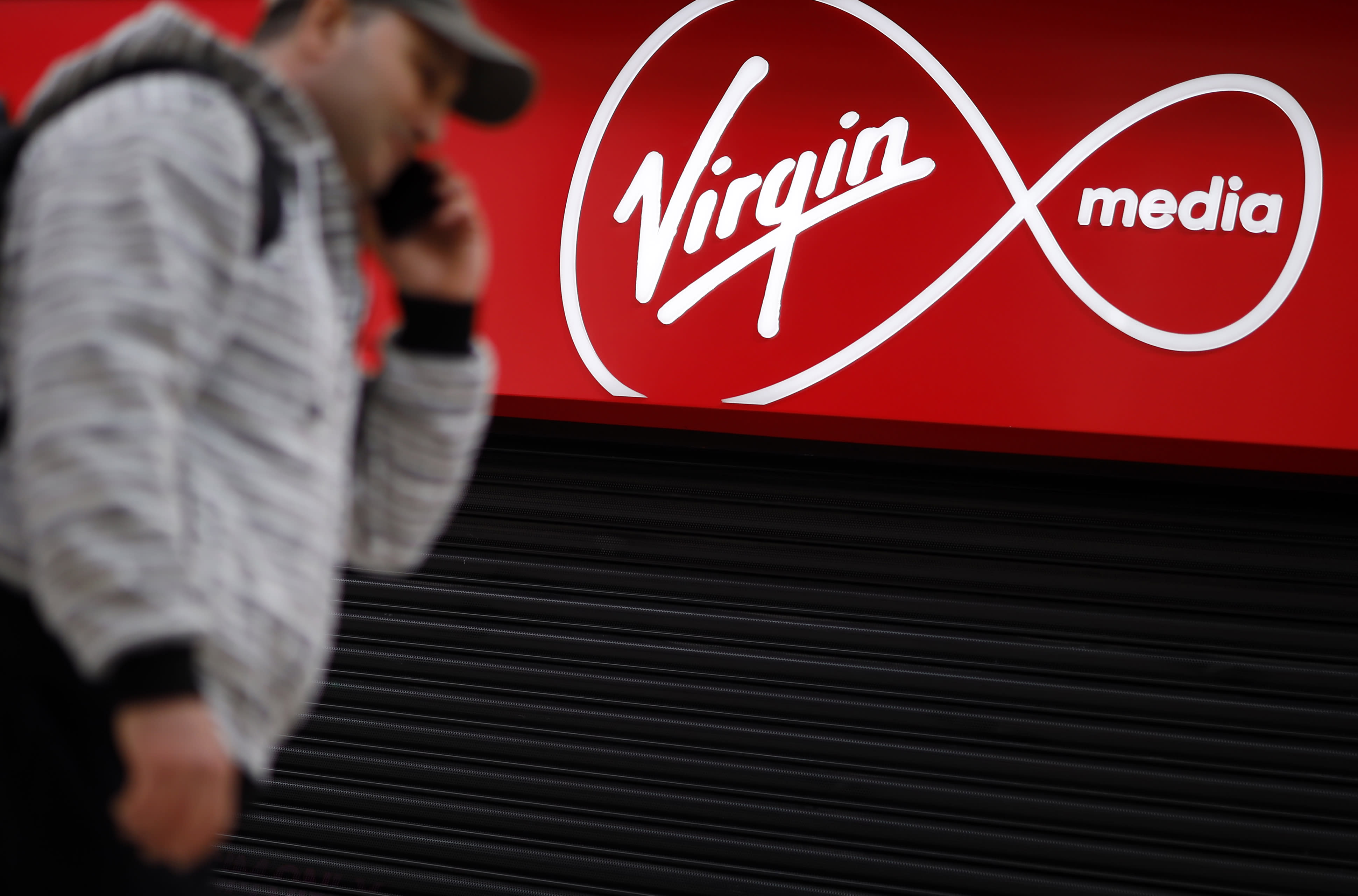
A person walks past a Virgin Media mobile phone store, closed down due to the Covid-19 pandemic, in London on May 4, 2020.
Tolga Akmen | AFP via Getty Images
Liberty Global and Telefonica have agreed to combine their U.K. operations in a deal that will create a new giant in the country’s telecommunications industry.
Liberty Global’s cable operator Virgin Media will merge with Telefonica’s mobile carrier O2 in a 50-50 joint venture between the two firms. The deal is valued at £31.4 billion ($38.9 billion), with O2 worth £12.7 billion and Virgin Media valued at £18.7 billion. The transaction is expected to close by mid-2021.
The combined company could put pressure on BT — which itself bought EE, Britain’s biggest mobile network operator, in 2016 — as well as rival carrier Vodafone and Comcast-owned Sky. BT CEO Philip Jansen called the merger a “sensible move” that “follows our strategy” of converging fixed and wireless broadband networks.
“This is an intriguing move,” said Paolo Pescatore, a tech, media and telco analyst at PP Foresight. “For sure, it is more likely to appease regulators than two mobile operators coming together.”
“Let’s not forget the parents of both companies have been keen to offload these assets for a while. Therefore, there is more to this than simply convergence and competing with BT and Sky.”
“Neither company is immune to the driving need for a converged network and services,” Pescatore added. “This is the next battle ground in the U.K.”
Telefonica CEO Jose Maria Alvarez-Pallete said the deal would be a “game-changer in the U.K., at a time when demand for connectivity has never been greater or more critical.” The coronavirus pandemic has led to increased demand for internet services as people across the U.K. have had to comply with lockdown measures.
“We are creating a strong competitor with significant scale and financial strength to invest in U.K. digital infrastructure and give millions of consumer, business and public sector customers more choice and value,” Alvarez-Pallete said.
Shares of Telefonica were up more than 1% during morning deals, while BT stock slumped over 7%. BT announced on Thursday that it would scrap all dividend payments until 2022 to manage through the coronavirus crisis.
Kester Mann, an industry analyst at CCS Insight, said he believed the deal was “a good one for both sides.”
“There’s a natural fit, they’re clearly gaining some of the assets they lack: mobile for Virgin, and fixed for O2,” he said. “I think it does provide a strong competitor to BT and also Sky.”
But he warned the coronavirus pandemic could serve as a double-edged sword for the new player.
“On the one hand, telecom operators are going to emerge from coronavirus with a great amount of respect,” said Mann. “The networks are generally performing very well and the value of connectivity has never been higher.”
But despite rising demand for connectivity resulting from the U.K.’s lockdown restrictions, Mann said this could “potentially necessitate more investment” to support the networks, adding that “there’s some challenges there in how they monetize that.”
The combined group will have a total of 46 million video, broadband and mobile subscribers, as well as £11 billion in revenue, the companies said. The deal will allow Virgin Media to tap O2’s experience in developing next-generation 5G mobile networks, which are expected to be a significant driver of sales for telecommunications firms in the future.
O2 will be transferred into the joint venture debt-free, the firms said, while Virgin Media comes with £11.3 billion of net debt and debt-like items. The newly-formed group will invest £10 billion into the U.K. market over the next five years.
Disclosure: Comcast, which owns CNBC parent NBCUniversal, is the owner of Sky.


